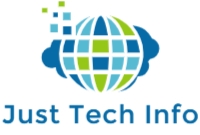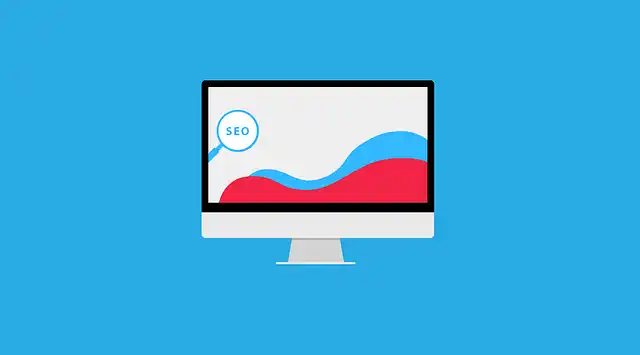Search Engine Optimization (SEO) has ever changed with technology, but AI in SEO represents the most momentous change so far. As artificial intelligence develops so quickly, it is transforming how websites rank, how people search for data, and how companies create content. In 2025 and beyond, understanding how AI is changing SEO is critical for digital marketers, SEO professionals, and businesses aiming to stay competitive.
In this article, we will find out the most important methods that change the AI in SEO landscape and what the future of SEO with AI.
1. Smarter Search Algorithms Powered by AI
Search engines such as Google have traditionally employed algorithms to crawl, index, and rank pages. The implementation of AI-driven tools such as RankBrain and BERT, though, has dramatically altered the way these algorithms interpret user intent.
In 2023, Google rolled out the AI overview, which uses Generic AI to provide a card, AI-written summary for some questions. This trend expands rapidly in 2025. These AI-powered results impact traditional search listings by reducing click-through rates to organic links — a major shift in how AI is changing SEO.
Websites now need to organize their information so that AI can comprehend and accurately describe it in addition to ranking well.
2. Voice and Conversational Search Optimization
The rise of voting assistants such as Alexa, Siri and Google Assistant has increased the popularity of voting – and AI plays a key role here. Users are now searching by using natural language, full sentences or questions instead of writing short keywords.
This implies SEO tactics have to change towards conversational content. By understanding long-tail terms and the intent associated with inquiries, AI solutions make keyword stuffing pointless. Content has to be more intuitive, human-style, and according to the way individuals speak and not the way they write.
This is another clear sign of how AI is transforming the future of SEO — pushing content toward quality, clarity, and context.
3. Generative AI for Content Creation and Optimization
AI tools such as chatgpt, jasper and surf SEO are strengthened to create quickly customized materials. From writing blog posts to suggesting keyword clusters and improving SEO on the page, AI streamlines the entire material production process.
However, this also poses challenges. AI-generated content still needs to meet quality standards, according to Google and other search engines. In Google’s Helpful Content Update, for instance, the emphasis is on E-E-A-T (Experience, Expertise, Authoritativeness, Trustworthiness), demonstrating that uniqueness and quality remain crucial even when content is produced with AI support.
Thus, while AI helps create content faster, it also increases competition. To stand out, human oversight and subject expertise are more important than ever in the future of SEO with AI.
Read also “The Future of AI in Education: Opportunities and Challenges“
4. Personalization and Predictive Search
AI enables search engines to provide tailored results according to a user’s search history, location, device, and activity. What ranks for one user might not rank for another, making SEO more dynamic.
Predictive search, such as Google’s autocomplete or related questions, is also getting smarter. It anticipates what users want before they even finish typing. As a result, SEO strategies must adapt by optimizing for user intent, search context, and behavioral data.
This level of customisation demonstrates how AI is transforming SEO from a system that prioritizes keywords to one that puts the user first.
5. AI in SEO Tools and Automation
The integration of AI into popular SEO tools such as Ahrefs, Semrush, Moz and Surfer Seo revolutionizes how professionals carry out track ranking and competitive analysis.
Here’s how AI enhances these tools:
- Keyword prediction based on trends
- Content gap analysis using NLP models
- Backlink analysis through machine learning
- Automated SEO reporting with insights
- Smart content suggestions using real-time SERP data
Using AI-enhanced tools allows marketers to make faster, smarter decisions — a key trend in the future of SEO with AI.
6. Image and Video SEO Gets Smarter
With images, video tape and even AI’s ability to understand the sound, the visual SEO becomes more sophisticated. Google Lens and other visual search equipment can now analyze reference to an image and return the related search results.
Marketers now need to:
- Optimize image metadata
- Use descriptive alt text
- Provide video transcripts
- Add structured data (schema markup)
This multimedia-focused optimization is an integral part of modern SEO — again emphasizing how AI is changing SEO across all content formats.
7. The Role of GEO (Generative Engine Optimization)
A new word that receives traction in 2025 is the generative engine optimization (GEO) – not just the practice of optimizing the material for traditional search engines, but also for AI tools such as Chatgpt, Perplexity, Bing Copilot and Google Sge.
As more users begin their search journeys within AI tools rather than Google alone, content creators need to consider how their content can be cited, summarized, or linked in AI-generated answers. This opens a new dimension in SEO strategy.
8. Ethical Considerations and AI Content Detection
With the advent of AI-created content, ethical SEO is increasingly relevant. Google and others are developing algorithms that identify low-quality or completely automated content. Penalization of this type of content is going to rise.
Businesses must concentrate on AI-assisted, human-enhanced content that offers users genuine value if they want to succeed in this environment. Successful SEO tactics in an AI-driven future will be determined by the creation of ethical content.
Conclusion: Embracing the AI-Powered Future of SEO
Integration of AI in SEO is not just a trend – this is a fundamental change. From smart algorithms and voting to create and personalization of content, AI runs a new era of digital marketing in SEO.
Understanding how AI changes how SEO allows Aberrian to prove her strategies in the future, provide better user experiences and stay longer in competing SERP. The future of SEO with AI is about collaboration – using AI for speed and scale, while people bring creativity, nuances and faith.
The key is to adapt, experiment, and blend AI tools with human expertise. The SEO professionals and businesses that embrace this transformation will lead the search landscape in 2025 and beyond.






